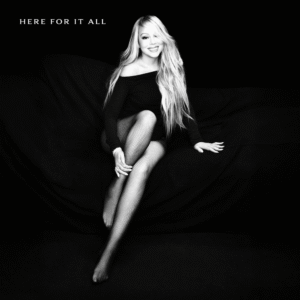
Mariah Carey’s name has become nearly synonymous with the Christmas season. Her 1994 hit “All I Want for Christmas Is You” reigns as a cultural phenomenon, re-emerging annually like clockwork and topping the charts every holiday season. The song has become more than a festive favorite; it’s the soundtrack to shopping malls, TV commercials, and holiday gatherings worldwide. The sheer success and ubiquity of this single Christmas song have cemented Carey as the undisputed “Queen of Christmas.” However, as her identity increasingly intertwines with the holiday season, there’s a growing question among fans and music critics alike: Is Mariah Carey’s legacy being overshadowed by her Christmas dominance?
The Meteoric Rise and Transformation of a Pop Icon
Before diving into Carey’s Christmas persona, it’s essential to acknowledge the full breadth of her career. Mariah Carey broke onto the scene in 1990 with her eponymous debut album, delivering a mix of powerful ballads and pop anthems that showcased her impressive five-octave vocal range. In the years following, she quickly established herself as a formidable talent, winning Grammy Awards, setting chart records, and becoming one of the best-selling female artists of all time. Hits like “Vision of Love,” “Hero,” “Fantasy,” and “One Sweet Day” solidified her as a 1990s powerhouse and vocal phenomenon.
Mariah was not only celebrated for her voice but also her versatility and influence in blending pop, R&B, and hip-hop elements, particularly when collaborating with artists like ODB, Jay-Z, and Nas. This genre-crossing appeal helped her remain relevant as musical trends shifted. Her image and artistry were multifaceted: she was both a pop diva and a pioneering force in hip-hop-influenced R&B, paving the way for future artists who would mix genres in similar ways. Her ability to stay relevant across multiple decades, especially through reinvention, is a rare feat.
Yet, even with this diverse and groundbreaking catalog, nothing in Carey’s career has reached the cultural omnipresence of her Christmas hit. And herein lies the debate: while “All I Want for Christmas Is You” is undeniably a monumental achievement, does it cast too long a shadow over her broader legacy?
The Seasonal Juggernaut of “All I Want for Christmas Is You”
“All I Want for Christmas Is You” has broken records since its release. It has almost 2 billion streams on Spotify, was added to the National Recording Registry by the Library of Congress, and has re-entered the Billboard Hot 100 nearly every year since streaming platforms started impacting charts. Its reach and resonance have outlasted and arguably eclipsed any other holiday hit in recent history, including classics from Bing Crosby and Nat King Cole. It has also become her most RIAA certified single to date – 16 million and counting.
Carey’s strategic embrace of the Christmas brand has only fueled this success. She has released Christmas albums, performed holiday concerts, starred in Christmas specials, and launched holiday-themed merchandise, from ornaments to children’s books. Over the years, she’s leaned into the role with a mix of charm and business savvy, understanding the market potential of her association with the holiday season.
The commitment to her Christmas image goes beyond music; it’s a cultural force that brings in millions of dollars annually through royalties, streaming, licensing, and brand partnerships. For fans, Carey’s presence heralds the start of the season—there are countdowns to the moment her song begins its annual ascent on the charts. But while this annual resurgence delights her fans and serves as a reminder of her enduring popularity, it has also started to define her in ways that may diminish other facets of her legacy.
The Impact of Christmas Fame on Mariah Carey’s Broader Legacy
Some fans and critics argue that Carey’s Christmas reputation detracts from the accomplishments of her broader career. For an artist who has won five Grammy Awards, sold over 200 million records worldwide, and scored 19 Billboard Hot 100 No. 1 singles—second only to The Beatles—it’s surprising how often her success is boiled down to a single song. Many young listeners primarily know her as the “Christmas singer,” missing out on her rich discography and the profound influence she’s had on pop and R&B music. Her role as a songwriter, too, is often overshadowed, even though she wrote or co-wrote most of her hits, including “All I Want for Christmas Is You.”
From a critical standpoint, some argue that Carey’s holiday success overshadows her contributions to 1990s and 2000s pop culture. While she was once at the cutting edge of music, collaborating with hip-hop and R&B icons, her persona today is more readily associated with holiday cheer than musical innovation. This seasonal association can make it challenging for her to get recognition in year-round music conversations, even though her influence on vocal performance, pop songwriting, and genre-blending is undeniable.
Beyond this, Carey’s Christmas image also brings its own set of expectations. Her fans and the media anticipate her seasonal return, pressuring her to consistently deliver Christmas-themed content, which has led to some criticism that she’s too focused on milking her holiday success. To her credit, Carey has managed this with both charm and humor, but it also means that every year, her identity becomes even more closely tied to Christmas, potentially boxing her into a role that feels limited given the breadth of her artistry.
Mariah Carey: Queen of Christmas or Musical Innovator?
So, does Mariah Carey’s Christmas success overshadow her legacy? The answer depends on one’s perspective. For the casual listener, her seasonal hit might indeed define her career. But for those who have followed her music journey, Mariah Carey is far more than just a holiday figure. She’s a groundbreaking artist, a survivor of industry challenges, and a talent who reshaped the pop and R&B landscape.
Mariah has embraced her Christmas success wholeheartedly, likely aware that it adds to her legacy in a different way. After all, few artists can claim to have created a song that has become a permanent fixture of global culture. While “All I Want for Christmas Is You” might be a seasonal phenomenon, it’s also a testament to Carey’s songwriting prowess, vocal power, and ability to capture universal emotions in her music. Even as it eclipses much of her other work in terms of visibility, it doesn’t erase her contributions to music history.
That said, there may come a time when Carey herself—or the public—grows weary of this seasonal identity. When that happens, she may find a resurgence of interest in her broader catalog, as listeners explore her other hits and contributions to music. Her core fans know that her legacy extends well beyond the holiday season, and she has left an indelible mark on music history that’s unlikely to fade, even if she remains the “Queen of Christmas.”
Final Thoughts
Mariah Carey’s Christmas dominance is a double-edged sword. On one hand, it’s a cultural achievement few artists will ever experience, a recurring triumph that keeps her in the public eye year after year. On the other, it risks reducing a versatile, groundbreaking artist to a seasonal icon, overshadowing a career rich with genre-defining hits and artistic innovation.
Ultimately, Mariah Carey’s legacy is multi-dimensional. Even if “All I Want for Christmas Is You” becomes her most celebrated accomplishment, it doesn’t invalidate her other achievements. For those willing to look beyond the holiday cheer, there’s a trove of music that speaks to her talent, resilience, and evolution as an artist. In the end, the Christmas spotlight might be bright, but it’s unlikely to ever fully overshadow the brilliance of Mariah Carey’s musical legacy.





